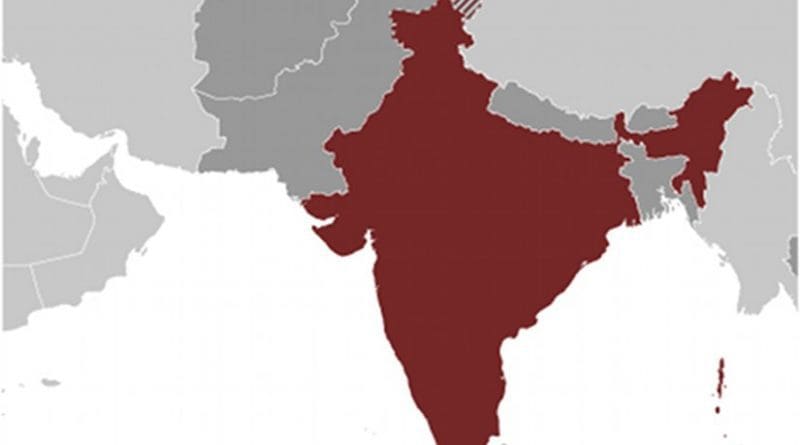Woman’s Death Ends Chapter Of Jewish History In India
By UCA News
By Shawn Sebastian
The alleyway leading to the Jewish synagogue in the old city of Kochi was crowded.
In the city locality of Mattanchery, a grief-stricken crowd had gathered in front of Sarah Cohen’s tiny house-cum embroidery shop which had served as a marker of by-gone time in so-called Jew Town.
Cohen was hospitalized after she fell from her bed and later died back in her home on Aug. 30. She was 96 years of age. She was buried at the Jewish cemetery in Mattanchery, close to the synagogue on Sept. 1.
She was the oldest of three Jews left in the once popular Jewish trade center on the coast of the Arabian sea in Kerala. Only two Sephardi Jews, who’s ancestors migrated from the Spanish Iberian Peninsula in the 16th century, are left in Mattancherry.
Both do not wish to interact with media or strangers, unlike Cohen.
However, the broader city of Kochi continues to be the home to 20 other Jewish people who are the descendants of 12th century settlers who adopted local language and culture.
Cohen was born and raised in Kochi. Even as other Jews from the community migrated overseas or to bigger Indian cities like Mumbai and Calcutta, she stayed put with her husband Jacob Cohen, who once worked with the Income Tax Department.
The couple never had children and after her husband passed away in 1999, Cohen remained, and her presence continued to symbolize the fading link between Jews and Kochi.
Jews and Muslims
Her embroidery shop was a popular location where she and her caretaker Taha Ibrahim, a Muslim, fondly welcomed visitors. Cohen and Ibrahim teamed up to introduce Israeli culture and traditions to the visitors as they also sold souvenirs and embroidered materials.
At a time when Jews and Muslims are often pitted against each other in the context of Israel-Palestine conflict discourse, Cohen and her Muslim caretaker’s companionship story was highlighted by many.
Cohen had already become a media star with several news reports and documentary films made about her. After she died, photographs of her cropped up on social media with people sharing moments they’d spent in her company.
“It was her wish to be buried in Kochi besides her husband’s tomb,” said Ibrahim to the crowd who had gathered for the burial ceremony.
“Aunty Sarah will continue to live in our memories forever,” said Ibrahim who has been taking care of her for the last 20 years.
“In her death, she has united all of us,” said Ibrahim referring to people from diverse religious faiths and different walks of life who had assembled at the Jewish cemetery. Y
aakov Finkelstein, whose grandmother is Cohen’s sister, performed the final rites.
“The light of Jew town has been put out,” Finkelstein read out a note from Becky Finkelstein, Cohen’s niece who resides in Israel and was unable to attend.
“Even though she has no family, she is loved by everyone here,” said Finkelstein who works with the Israeli consulate in Mumbai.
Biju Ibrahim, a photographer with the Kochi Art Biennale who had documented and interacted with Cohen several times, said the door of her house was always open for visitors.
“She treated me as if I was a family member,” Biju said. “Even when her memory was fading because of advancing age, she had vivid memories of the golden days of Jew Town in Mattanchery,” he said.
Historians believe the first Jews arrived in India more than 2,000 years ago. Some were fleeing religious persecution; others sought out trade and better economic opportunities.
Sephardi Jews, to which Cohen belongs, are also known locally as foreign Jews or Paradesi Jews. They thrived in Mattancherry and were well known for trading in spices and timber, among other goods. Most of the community lived near a 450-year-old synagogue, but regular Shabbat prayers stopped many years ago because it was hard to meet the 10-person quorum required to conduct prayers.
Following the formation of Israel in 1948, a large number of Jews in India left the country, marking the rapid decline of the once populous community.

